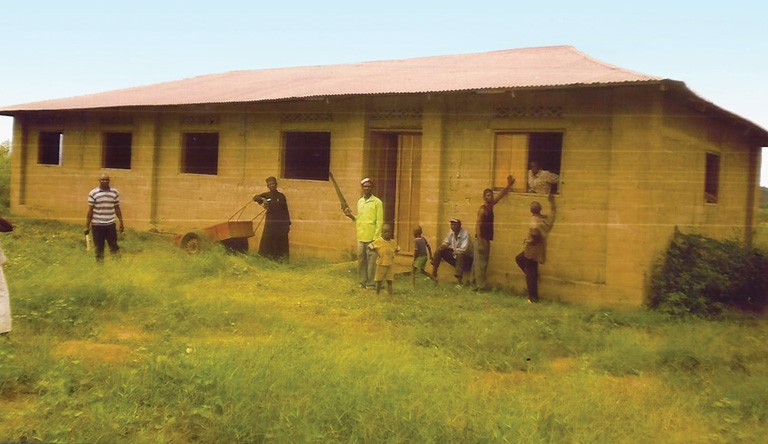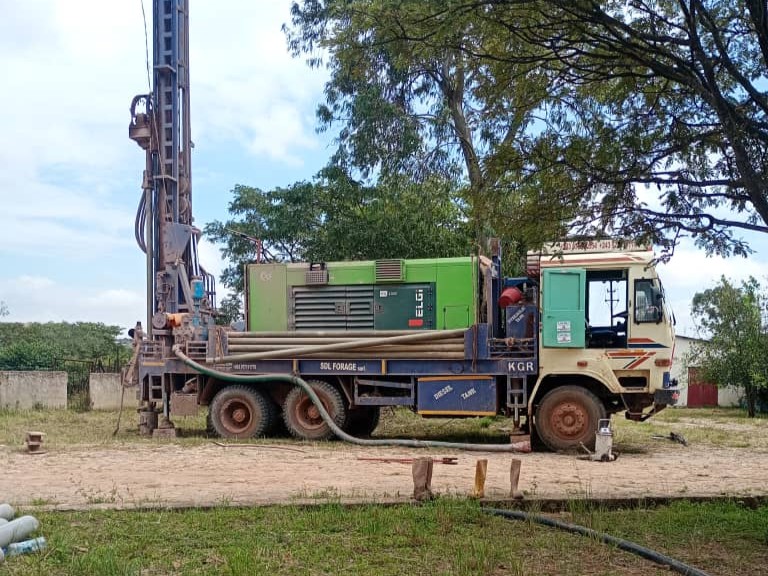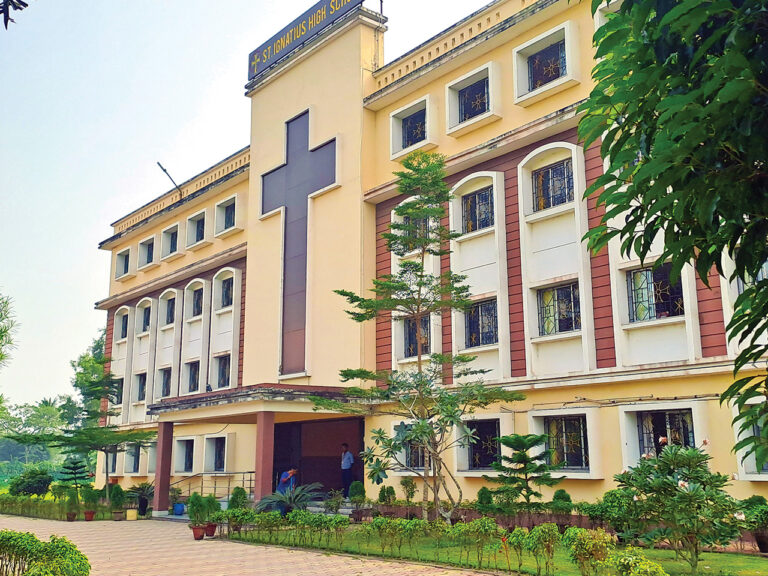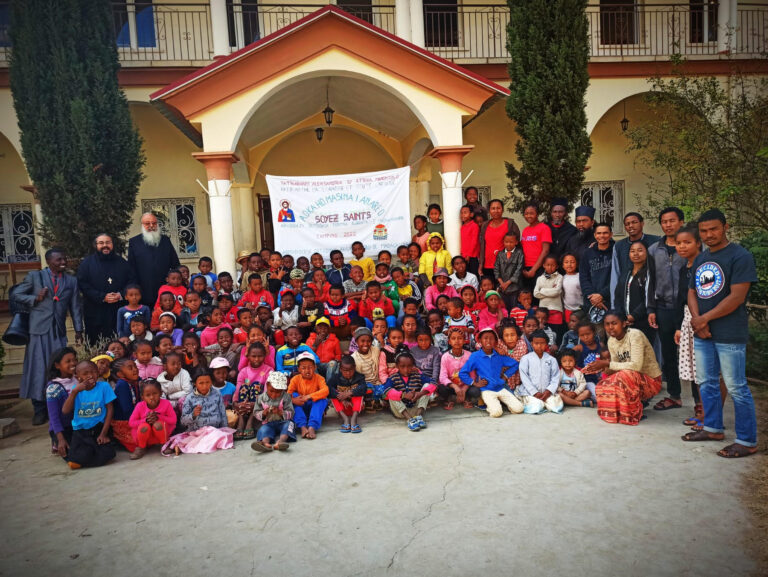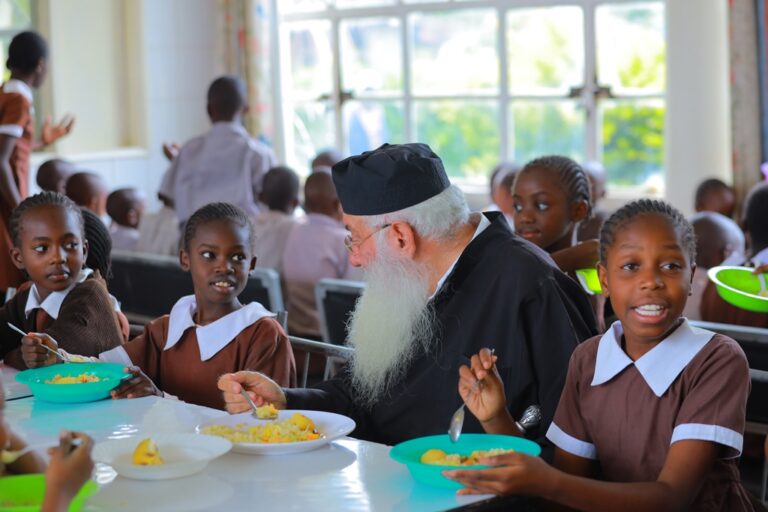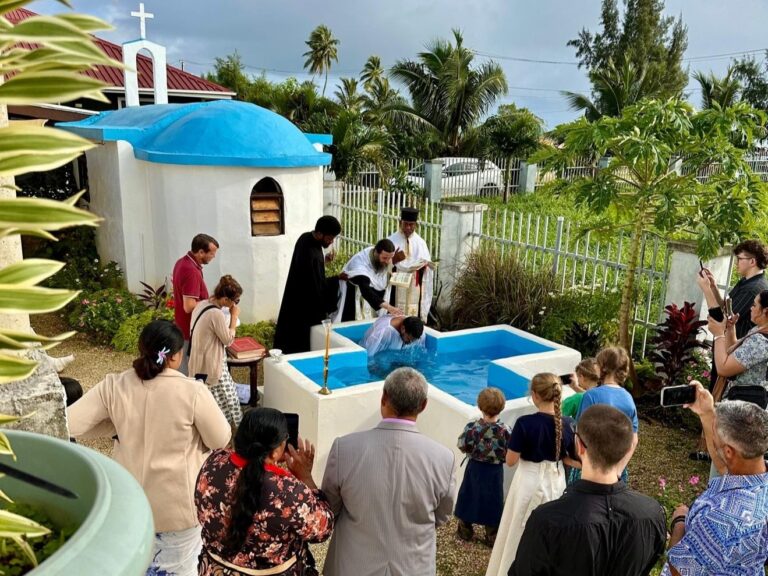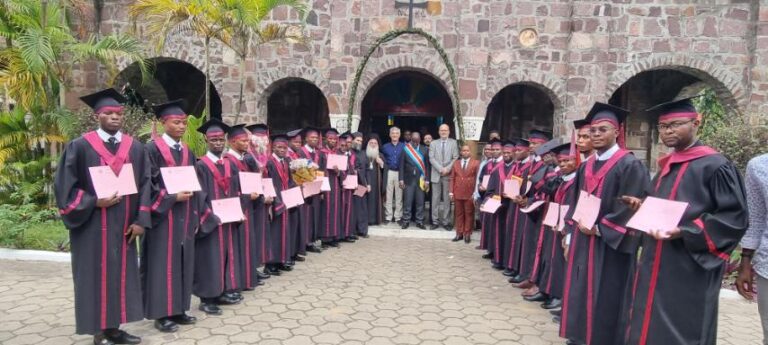A clinic in the heart of the jungle
Dear friends of the Mission, I must share with you the joy of our indigenous brothers of Samana for the completion of the construction of the small clinic built with the financial support of a donor of our Brotherhood. Fr. Augustine and his indigenous faithful went to the forest and with the chainsaw I had sent them, they cut wood and made beds, tables, chairs, cabinets, doors, windows for the clinic.It was towards the end when they found that they were out of cement and nails, things rare in the forest villages. They couldn’t go on. They called us and we had to send them from Kinshasa. The struggle of the expedition began. They traveled two months in the river to reach the nearest town, llebo. As soon as we were informed that they had arrived, we sent word for them to come and pick up the 30 sacks of cement and the nails we had sent by riverboat. A group of natives went in with single-timbers. They traveled down the river for a week to reach Illebo, where they picked them up and made their way back to lay the floor and finish building the beds. Our little clinic was coming to an end. It now had to be equipped with mattresses, sheets, pillows, medicines, medical tools. A new struggle.
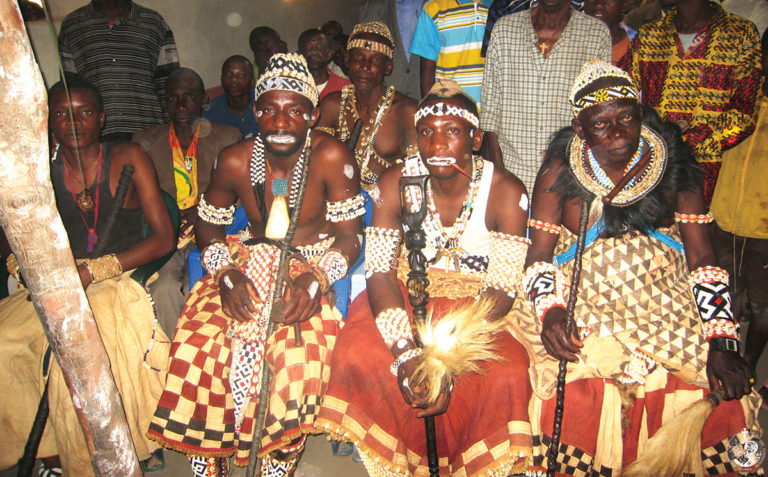
The natives were happy and tried in every way to show us their joy. And we were happy and praised God. It’s not easy to build so far away, where there are no cars to transport the materials, no basic roads, no basic means. Soon they’ll have their clinic, their medicine, their nurse, their doctor, they won’t be dying on the road, or in the mono-trees trying to get to the nearest doctor. I remember, on that tour, when, after an adventurous journey through the Saguru River, we arrived in Samana, in the depths of the Congo, where for the first time it was going white, the joy that the natives felt at the reception.
The children came up to me, grabbed my hands, my beard, and ran to their mothers and cried: “They’re like us!” The old men thanked me that before they died they saw what the white men looked like. The believers sang: “The Orthodox Church is the only true one, here is our Bishop, here is our Father; where are all of you who told us that our Church does not exist?”
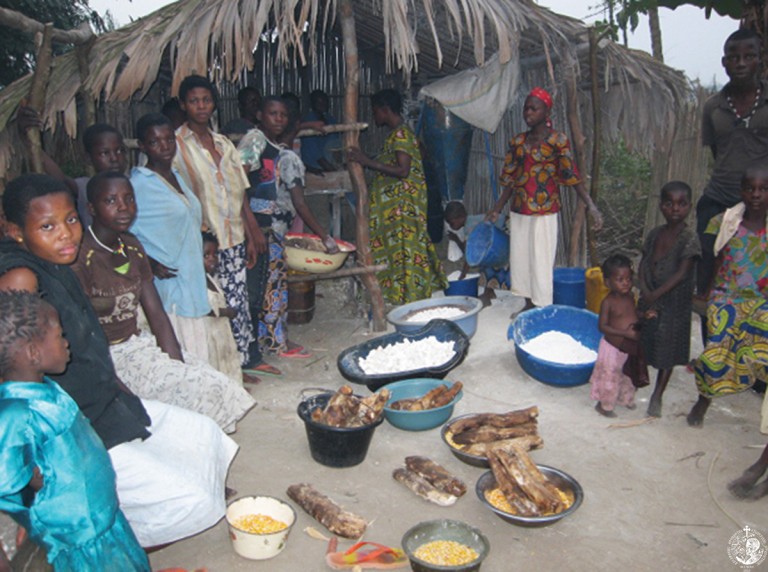
I remember how they came out of the woods to greet us, how they went down to the river banks to greet us. I remember, in the evening when we sat under a big tree and talked with the village leaders and the district chiefs, that among other things they expressed to me their sorrow and anxiety for the sick: “Our old people and children are getting sick, and by the time we get them to the nearest medical center, which is a few days’ walk or a few days’ ride on a single tree, they are dying on the road.” I cried at their pain. I felt guilty. I was hurt when they said, “We don’t want anything else, just help us to have our medicine.” All night long, to show their love, outside the hut where I was staying, they danced and sang around a fire. In my mind, all that night, the things I heard were swirling around in my head. Now they’re dancing; if they get sick tomorrow, what will they do? They’ll die in the street. I watched them and wept. It was daylight. As I was leaving, I promised them: “I’ll do what I can; make it a matter of prayer and God will help.” When, after a three-week tour in the depths of Congo, I returned to Kinshasa, I contacted our Orthodox Foreign Missionary Brotherhood. I felt the pain of our brothers and sisters of Samana, a donor was found, and today we are proudly occupying the building of our small clinic. God bless the donor.
May God help equip our small clinic with medicines and medical instruments to provide medical care to our brothers and sisters in the depths of Congo. May they not die on the streets.
† The African centrist Nikiforos
